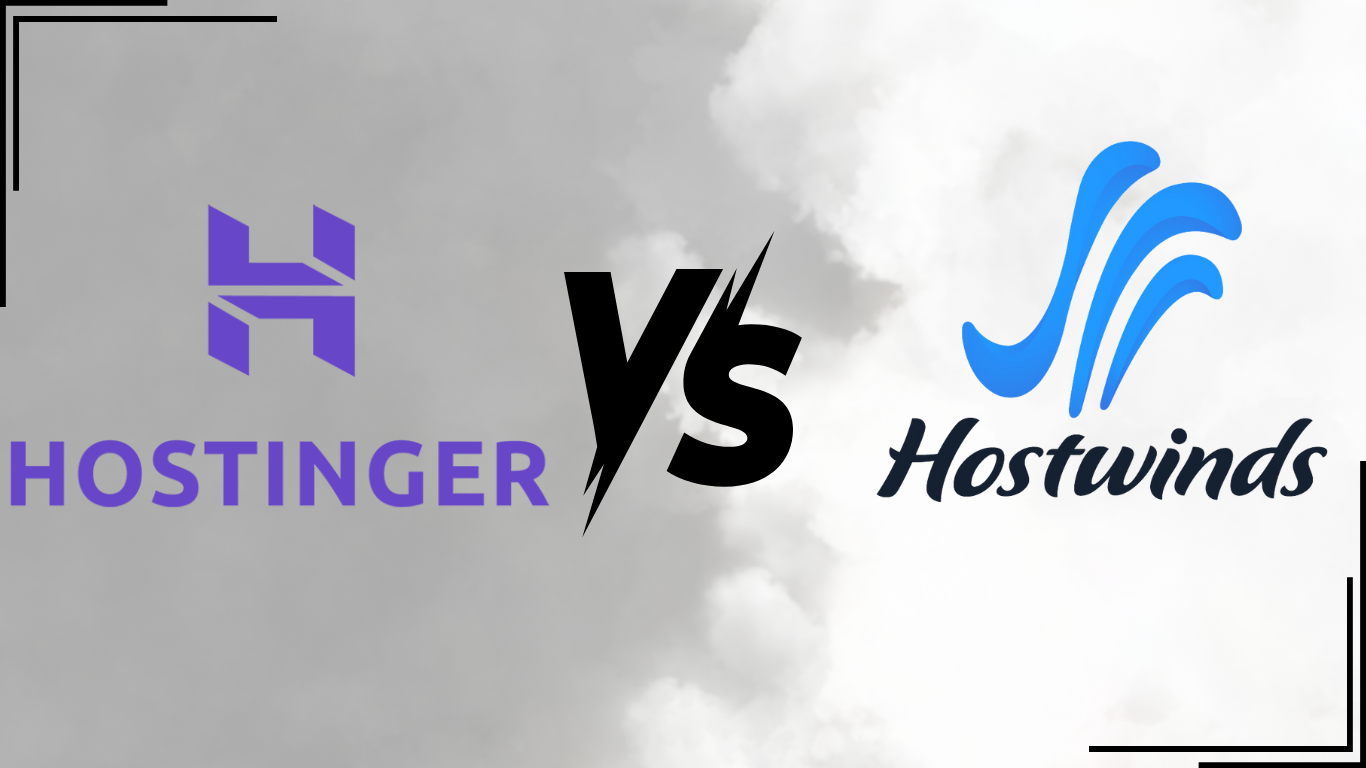Selecting the right web hosting provider is a crucial decision that can significantly impact your website’s performance, security, and growth. Among the many options available, Hostinger and Hostwinds stand out as two reputable hosting providers, each with unique strengths and features. Whether you’re building a personal blog, an e-commerce store, or a complex business website, comparing the two can help you make an informed choice.
In this article, we’ll explore how Hostinger and Hostwinds stack up against each other in terms of pricing, performance, features, customer support, and more.
1. Pricing Plans
Hostinger is widely recognized for its budget-friendly pricing. Its shared hosting plans start at just $1.99/month, making it one of the most affordable options on the market. This starter plan includes a free SSL certificate, 100 GB bandwidth, and weekly backups. Hostinger also offers competitive pricing for other hosting types such as cloud hosting and VPS, all tailored for small businesses, personal sites, and startups.
Hostwinds, while not as inexpensive as Hostinger, still offers affordable plans starting at $5.24/month for its shared hosting option. Hostwinds pricing might be slightly higher, but they offer features that cater more to users looking for premium hosting services, such as dedicated servers and fully managed VPS hosting. Hostwinds also emphasizes more advanced hosting solutions for larger businesses.
Winner: Hostinger takes the lead in terms of affordability, especially for users on a tight budget.
2. Performance and Speed
Performance and website speed are key factors when choosing a web hosting provider.
Hostinger utilizes LiteSpeed Web Servers, which are known for faster loading times and improved website performance. Hostinger also has multiple data centers worldwide, allowing users to choose a location closest to their audience, reducing latency and ensuring quicker loading speeds. Hostinger promises a 99.9% uptime guarantee, offering reliable performance for most small to medium-sized websites.
Hostwinds, however, focuses on delivering powerful infrastructure and scalability. With its SSD-based hosting, Hostwinds offers fast loading times and strong performance, particularly for high-traffic websites. While their entry-level shared hosting may not be as fast as Hostinger’s LiteSpeed-powered plans, their VPS and dedicated hosting options shine in terms of speed and performance. Hostwinds also offers a 99.9999% uptime guarantee, which is one of the best in the industry.
Winner: Hostwinds wins in terms of performance for large-scale and resource-intensive websites, but Hostinger is ideal for smaller websites with solid performance at a lower cost.
3. Ease of Use
A user-friendly interface is essential for both beginners and experienced webmasters.
Hostinger has developed a custom control panel known as hPanel, which is intuitive and user-friendly. It’s designed to make managing websites simple, with easy access to settings for domains, emails, and files. While not cPanel, hPanel is streamlined for ease of use and is especially beginner-friendly.
Hostwinds provides the standard cPanel, which is one of the most widely recognized control panels in the web hosting industry. It’s more feature-rich and powerful than hPanel but can be overwhelming for users who are new to website management. For advanced users, cPanel is highly preferred due to its versatility and comprehensive feature set.
Winner: Hostinger is better suited for beginners with its simpler hPanel, while Hostwinds appeals to experienced users who need the flexibility of cPanel.
4. Customer Support
Reliable customer support is a must when hosting a website, especially when dealing with technical issues or urgent problems.
Hostinger provides 24/7 support through live chat and email. While they don’t offer phone support, their live chat system is known for being responsive and helpful. Hostinger also has an extensive knowledge base that includes tutorials and guides to help users troubleshoot common issues.
Hostwinds offers 24/7/365 support through live chat, phone, and email, making it more accessible for users who prefer speaking to a representative. Hostwinds’ support team is often praised for their quick responses and technical expertise, especially for users who opt for managed services like VPS or dedicated hosting.
Winner
Hostwinds wins this round due to its broader range of support options, including phone support, making it more convenient for users who want more direct and comprehensive customer service.
5. Features and Extras
Both Hostinger and Hostwinds offer a range of features to enhance your hosting experience, but they cater to different user needs.
Hostinger provides essential features such as free SSL certificates, weekly backups, Cloudflare integration, and a free website builder with drag-and-drop functionality. Their plans also come with one-click WordPress installations, making it easy for beginners to set up websites. Hostinger’s VPS and cloud hosting options are also optimized for performance, offering additional speed and reliability.
Hostwinds, on the other hand, is feature-packed, especially for higher-tier plans. They offer unlimited bandwidth and disk space for most hosting plans, making it ideal for websites that expect significant growth. Additionally, Hostwinds provides advanced features like dedicated IPs, free website migration, daily backups, and server monitoring. These are critical for businesses with high-security needs and larger infrastructures, such as e-commerce or corporate websites.
Winner: Hostwinds takes the lead with its advanced features and higher resource limits, but Hostinger offers great value with essential features at a much lower price point for smaller websites.
6. Security
Website security is critical, regardless of the size of your website or business.
Hostinger includes free SSL certificates, weekly backups, and DDoS protection through Cloudflare in most plans. Their VPS and cloud hosting services come with added security layers such as automatic backups, malware scanning, and protection against brute force attacks.
Hostwinds excels in security features, offering nightly backups, free SSL certificates, firewalls, and server monitoring. Hostwinds’ managed services include proactive monitoring, malware protection, and advanced security configurations, making it suitable for users with complex hosting needs that require robust security. They also provide DDoS protection, essential for high-traffic websites that are vulnerable to cyberattacks.
Winner: Hostwinds wins in this category due to its more comprehensive security measures, particularly for larger websites or businesses that require more advanced protection.
Final Verdict: Which Hosting Provider Should You Choose?
- Choose Hostinger if you’re looking for a highly affordable, beginner-friendly hosting solution with solid performance for small to medium websites. Hostinger is perfect for personal blogs, small businesses, and startups that want good performance at a low cost.
- Choose Hostwinds if you need more advanced features, better scalability, and superior security options. Hostwinds is ideal for larger businesses, e-commerce sites, or high-traffic websites that require reliable, high-performance hosting with extensive support options.
In conclusion, Hostinger is the best choice for users looking for budget hosting with solid performance and ease of use, while Hostwinds is better suited for users with larger websites, complex hosting needs, or those who prioritize robust security and customer support. Both providers offer excellent services, and the choice ultimately depends on your website’s size, complexity, and specific hosting requirements.





